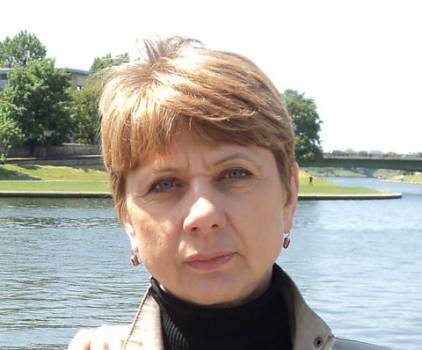Liubou Kavaliova receives no answer concerning secrecy surrounding bodies of death convicts
Liubou Kavaliova, the
mother of Uladzislau Kavaliou who was executed on charges of terrorism,
addressed various authorities, including Aliaksandr Lukashenka, with the
request to be given the rationale for keeping in secret the place of the
convicts' burial and the impossibility to issue their bodies to relatives.
She still hasn't received any response from Lukashenka, whereas the
Presidential Administration answered only her second address.
“I addressed Aliaksandr Lukashenka as president several times, including a
request for an audience. The answers were given by his “chancellery”, the
Presidential Administration. In my latests addresses I asked to explain the
necessity for the secrecy concerning the bodies of executed convicts. I also
asked Aliaksandr Lukashenka to issue a decree that would change the present
rules so that the relatives would be given the bodies or at least informed
about the places of burial. As there was no answer to my letter of 7 May, I had
to write to Aliaksandr Lukashenka on 31 May again. Only then I received an
answer, but it wasn't from Lukashenka (though I addressed him in person), but from
the head of the department of citizen's applications, Stanislau Buka. Again,
there were no explanations in this letter, only a reference to part 5 of
Article 175 of Criminal-Executive Code, where it is stated that “bodies are not
issued” and “the place of burial is not told”, said L. Kavaliova.
The letter also states that there are no reasons to revoke this legal norm and
that it is not a president's business to explain to somebody provisions of
laws.
“I think that this provision of the law is a mockery at relatives of the
executed, who are not guilty of anything. Why do they need to be subject to
such moral torture then? Moreover, it still remains unclear for me as a citizen
of the Republic of Belarus who is responsible for the essence of the legal regulations.
Being asked why the bodies of the executed are not issued and the places of
their burial are kept in secret, the Supreme Court, the General Procuracy and
the MIA Penal Department only referred to the appropriate article of the
Criminal-Executive Code... It means that there are state organs that adopt
laws, judge people, execute verdicts and exercise supervision over abidance by
the law, but there are no organs which would be able and obliged to explain
what a certain legal norm is grounded on,” stressed Liubou Kavaliova.
The woman is sure that the trial of Dzmitry Kanavalau and Uladzislau Kavaliou,
sentenced to death for terrorism, was unfair and there are still many unclear
moments concerning the explosion in Minsk tube on 11 April 2011, that's why she
(together with a considerable part of the Belarusian society) disagrees with
the death verdict, issued by the Supreme Court. Even though the son has been
executed, the woman takes every effort to prove the innocence of her son.


